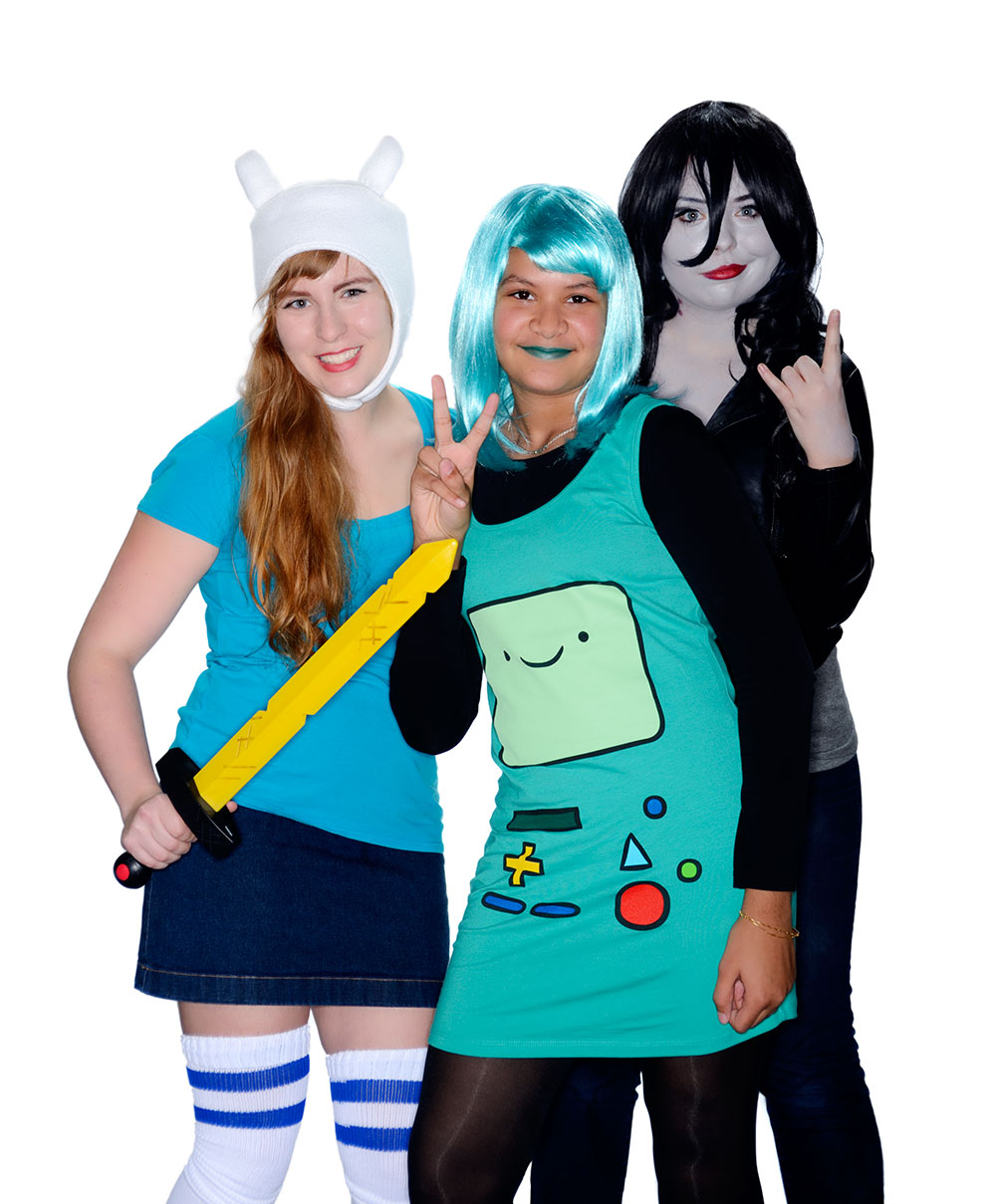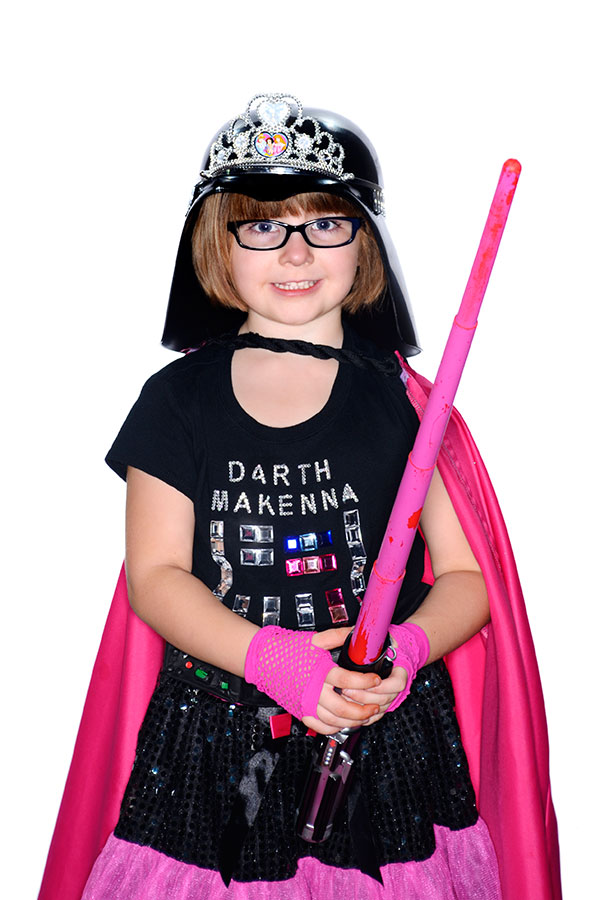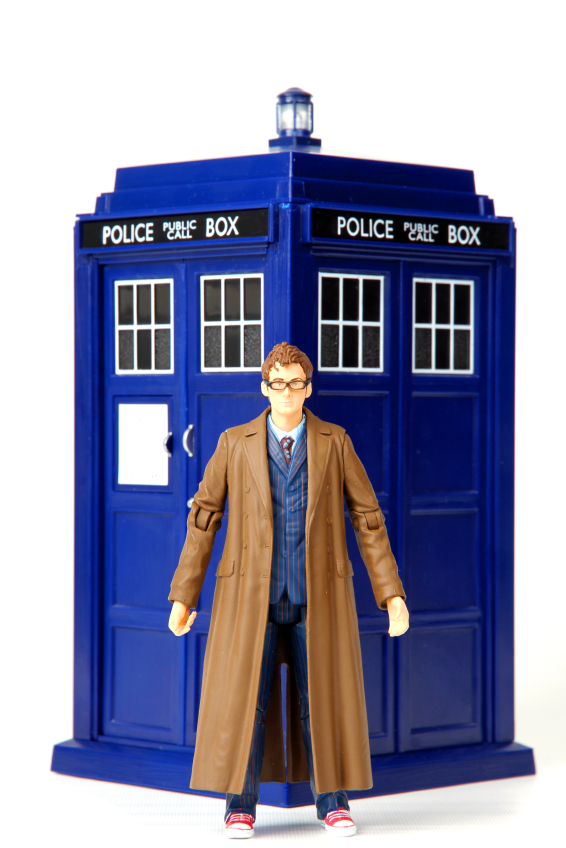
“You have the movie taste of a 12-year-old boy,” my friend Amy joked.
I had just suggested we see a superhero movie instead of a romantic comedy. But this was not a new thing — my most enthusiastic movie suggestions have always featured aliens, robots or hobbits. Since I was a young girl, I’ve immersed myself in the sagas of comic book superheroes, marveled at the mech awesomeness of Robotech, rooted for the “rag-tag fugitive fleet” in Battlestar Galactica, and cherished my Millennium Falcon spaceship with Han Solo and Chewbacca action figures.
Yes, I am a lifelong geek. And now, in my late 30s, I am also a mom, ushering my kids into a generation for which geekiness suddenly is not only much cooler, but everywhere.
Geek defined
So what is a “geek,” exactly? Most geeks are self-proclaimed. One of the most common traits of geekdom is having less conventional interests, with a slant toward science fiction, fantasy, gaming, comic books, cult movies/programs/books and science in general. “Being a geek might set you apart from the mainstream to the point that you feel a special affinity with a stranger who shares the same ‘geekness,’” explains Dave Neil, a dad of three from Bellevue.
Geeks are also known for their love of detail and desire to always know more. Corrina Lawson, content director for GeekMom.com, explains that geeks have “an innate and near-insatiable curiosity” driving them to seek deeper understanding of everything from everyday subjects to their own specific fandoms (a community of fans devoted to a common show, story, game or characters).
Another bona fide geek trait is valuing intelligence and imagination so much that it becomes a lifestyle and/or a professional choice. “Having an all-encompassing hobby can even lead to a career. For me, my interest in science has led to one,” says Adrienne M. Roehrich, vice president of the board of GeekGirlCon, the Seattle-based organization and annual convention celebrating female geeks.
Perhaps the most endearing aspect of geekdom isn’t so much what geeks love, but how they love and share it. Today’s geeks swarm at large, organized conventions (or “cons”) where like-minded adults and kids — often dressed up in costume — commune. The cons promote geek media and connect sellers and buyers of all sorts of merchandise. Wil Wheaton, an actor from Star Trek: The Next Generation and the de facto “Nerd King,” described it best at the 2013 Calgary Expo, when he said his fellow nerds in the packed auditorium had traveled from around the world to attend the convention “so that we can be around people who love the things that we love, the way that we love them.” It’s as simple as that.
Yesterday’s geeky teens
When I first heard Wheaton’s proclamation, a lump formed in my throat. Geeks of my generation epitomized the outcast. Movies like Weird Science, Revenge of the Nerds and Real Genius captured that awkward, misunderstood dweebishness that other geeks and I lived every day.
Cyrus Kirby, proprietor of FatherGeek.com, remembers being called a geek on the school bus and the playground in a way that “was meant to suggest I was somehow weird or different in a way that society would consider abnormal.”
But outgrowing the playground didn’t mean an end to the shunning. Robert Holladay, a Portland dad and Batman enthusiast, recalls, “Back in junior high and high school, geeks were a very small fringe group who were relegated to a back table in the school library."
Growing up in rural southwest Washington during pre-Internet days, I had no way of knowing I’d ever find anyone who would “get me.” It proved a paradoxical time: I yearned to “fit in,” but I also wanted to escape into my passions, many of them not stereotypically girly. It’s an experience many geeky girls of my generation share.
“When I was growing up, geek was a really bad word. So I always knew I was a bit different and interested in stuff outside the mainstream, especially for girls,” says Lawson of GeekMom.
It wasn’t until high school that I finally found and was embraced by a group of people who shared my love for nerd fodder like sci-fi/fantasy movies, comic book heroes and obscure British comedy shows. It was only then that I realized being a geek might be OK.

‘It’s cool to be different’
Unlike their parents’ generation, today’s self-identified geeky teens don’t face nearly the same ridicule about their interests. Lani, a 14-year-old from Wilmington, N.C., attends conventions in costume as Mom Lalonde, a character from the Web comic Homestuck. The practice is called “cosplay” — dressing up as a character from a movie, TV show, comic or video game. Cosplay has its own devoted subculture and is often prominently on display at events such as comic conventions and “geek” movie openings.
“Cosplay is so much fun, because you can literally dress up as anything you want to. The only thing that sucks is how expensive it is. You could not choose a more expensive hobby,” Lani laments.
Social media is helping geeks to be accepted and embraced, Lani says. “Places like Tumblr and Instagram are full of nerds and fandom bloggers who enjoy talking about the things that interest them.”
“Nerds are people who know a lot about what they’re interested in, and that kind of culture is becoming more popular,” says Jacob, a 13-year-old in Los Angeles. “The popularity deflates the nastiness of the idea of geekdom.” Jacob is an avid Rubik’s cube solver and loves video games. His dad, Robert Holladay, introduced him to geek interests. As a geek, Jacob has it a lot easier than his dad did. Not only is current culture on his side, but he also has a parent who is wholly supportive of his interests.
Last October on a rainy weekend in downtown Seattle, more than 3,000 geeks and their supporters filled four levels of the conference center at the Washington State Convention Center for GeekGirlCon 2013. Gamers, exhibitors, panel speakers and staff mingled with attendees, and the press was abuzz with the news that, for the first time in its three-year existence, the convention had sold out. The weekend-long event offered discussion panels, comic illustrators, exhibitor booths, celebrity appearances, games tables and a costume contest. Cosplayers showed off their character love and eye for detail in costumes ranging from a ’60s-era Batgirl, Gears of War and Hello Kitty to The Avengers’ Hawkeye and Black Widow to all manner of Doctor Who and Star Wars incarnations — and beyond.
Seattle-area friends Grace and Clara, both 15, attended in costumes inspired by their most beloved show, Doctor Who, which just celebrated its 50th anniversary. Grace was dressed as the 15th doctor, and Clara wore a dress resembling the blue TARDIS (a time-travel machine). As costumed attendees milled around us during the lunch break, Clara said that she thought the best thing about being a geek was “marveling at human genius.” I asked the girls what they thought had changed about being a geek since their parents’ generation. “It’s cool to be different,” Grace said.
Wow. When I was 15, I was constantly uncomfortable with being outside the norm. Things have sure changed.
A disturbance in the Force
But life is not yet perfect in all of geekdom. The growing pains of transforming from a fringe group into a more visible demographic with increasing clout has created some challenges for the larger geek community. Despite the fact that many geeks know firsthand how it feels to be marginalized and intimidated, in recent years some female con attendees, gamers and other geeks have complained of discrimination by their male cohorts.
“Some geeks put themselves in exclusionary cliques, [and] a vocal minority of male geeks seems to want to exclude some women,” GeekMom’s Lawson says. “Some of them run comic, video game and movie companies.”
Last year, some female cosplayers were harassed and photographed by men without permission at New York Comic Con. It’s disappointing that these attitudes still exist in some corners of the geek world. But, increased awareness of these incidents and media exposure raised an uproar, and conventions have since stepped up their policies on attendee conduct and are getting better at enforcing consequences for those who violate the rules. This is a great move toward keeping cons safe for all attendees. But changing hearts and minds is a gradual process that’s going to require vocal support from female and male geeks alike. After all, isn’t respect of fellow geeks a cornerstone of fully loving and sharing our interests?
Hip to be square
Thanks in part to technology, geek culture is on its way to the mainstream, even as that change makes many proud geeks shudder.
“For the first time in human history, we can share our thoughts, engage others and have an open discussion with everyone in the world” because of technology, says Kirby of FatherGeek. Even if you don’t live near other people who share your interests, a virtual community is at your fingertips.
Bill Svitavsky, co-editor of the book Ages of Heroes, Eras of Men and an associate professor and emerging services librarian at Rollins College in Florida, believes geek culture resonates better with the current generation because of the ease of access to information. Technology has prompted a widespread “culture of commentary,” he says. Via the Internet, it’s so easy now to give instant input, strike up conversations and rove vast digital grottos (wikis and websites) for information on favorite fandoms, characters and celebrities.
And the appetite for geek-centric content only continues to increase. The GeekMom audience has consistently grown since the community was founded three years ago, Lawson says. “Geeks have gone mainstream.”
This is great news for normalizing geek culture. Patton Oswalt, stand-up comedian, actor and Star Wars nerd, explained during a Nerdist podcast why mainstreaming is a good thing. “You get old enough to know that every single thing — punk rock, hip-hop, everything — becomes mainstream,” he says. “It has to, so that something else can react to it. Staying underground and staying edgy is just as stagnating as staying mainstream and bloated.”
So despite what some die-hards think, the slide of geekiness into popular culture is not necessarily a harbinger of doom.
Sharing with the next generation
Geekdom is righteous fun when shared with kids.
Science fiction, fantasy, superheroes and Anglophilia all fostered my own curiosity, sense of humor and boldness. And I’d really love for my kids to be as inspired by geekdom as I was.
But they are still young, so we’ll start with the basics. I’ll just sprinkle a little Yoda, Bilbo, Mr. Sulu, Super Friends and Wesley Crusher here and there. I actually gave my infant son a head start by decorating his nursery with a Star Wars theme.
For my princess-obsessed preschooler daughter, I needed an old costume to get the ball rolling. Back in the late ’70s when I was 4, I dressed as Batgirl for Halloween in a costume my mom made by hand. Decades later, while going through some boxes, I stumbled across my cape, ears and belt. When my 4-year-old daughter saw them, she immediately exclaimed that she wanted to be Batgirl for Halloween, too. It made me so proud to see her get that excited and inspired.
With both Seattle’s Emerald City Comicon and San Diego’s Comic-Con International coming up next month, geeks will again have the spotlight at a time when being geeky is more acceptable than ever. Here’s hoping that all geeks — regardless of their age, gender, interests, cosplay budget or fandom knowledge — show how inclusive and progressive this community can be. It’s where I found my own true identity and where I hope my kids might find theirs.
So say we all.
Seattle writer Kali Sakai is a lifelong geek married to a computer nerd. She’d love for their two young children to speak Klingon, Elvish or Wookiee someday. But at this point, she’ll settle for her daughter liking anything besides pink and princesses.
 Passing the geek torch
Passing the geek torch
When I interviewed other parents for this piece, I asked, “What are you excited to share with your kids about being a geek?”
While I had expected answers such as certain movies, shows and superheroes, what actually came through was the aspirational side of geekdom.
“I want to teach them to not be ashamed of loving something. I want them to grow up knowing that they can experience the world in many different ways.”
— Sara Conway of Geek-Parents.com
“It was important to me to share an aspect of the world that encouraged creativity and intelligence. It was also important to me to have a common interest. We’ve watched nearly every episode of the new Doctor Who show together.”
— Portland dad Robert Holladay
“Geekdom lets you stay a kid for as long as you refuse to grow up — which makes being a parent even more fun. Parents are happy to see that they can still be who they are — geeks — even after they have kids.”
— Kelly Knox of GeekMom.com
“I’m really happy that my daughter enjoys going to Dragon Con with me. She’s a young teen, and the fact that not only is she willing to go [but] thrilled to go with me makes me happy.”
— Susie Murph of How to Grow Your Geek podcast











